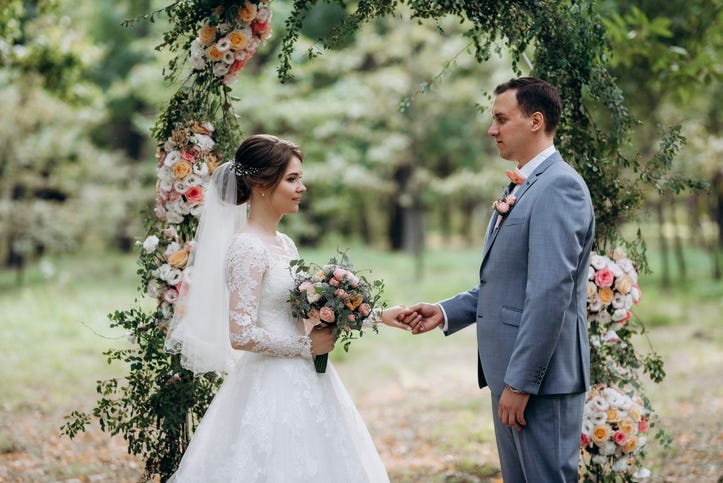
A fairytale wedding might sound like a magical idea… until the real-life costs start adding up. However, that doesn’t mean a dream wedding is impossible.
Love keeping up with business news? Download the Audacy app and follow WBBM Newsradio to get WBBM’s Weekend Wallet newsletter!
This week, Ed Gjertsen, certified financial planner and founder of Engage Wealth Group in Chicago, joined WBBM Newsradio’s Andy Dahn to discuss how to keep the fairytale financially manageable. For starters, they discussed why it is a good idea to see a financial planner before calling venues and caterers.
“So, ultimately… we want to be cost conscious and aware because this is a very emotional time,” Gjertsen explained.
According to recent research published by Zola, wedding costs hit an average of $36,000 this year, though that can vary based on location, guest count and more. Venues accounted for the biggest chunk of spending, followed by catering. Zola also warned about hidden costs that can cause wedding price tags to balloon and said that nearly 70% of couples exceed their initial wedding budget.
“Those caterers and all the other folks around you may not have [your] interest,” in mind, Gjertsen said. “They may be preying on your emotions and really taking what you had thought was a standard budget and creating just a stretch of finances if you would for that one day.”
Survey results published this year by U.S. News & World Report found that couples do generally expect to take a financial hit due to their nuptials. More than half (58%) of the respondents said they planned to take on debt to finance their weddings and 63% said their economic situation had gotten worse since they began making wedding plans.
Dahn asked Gjertsen about potential big spending mistakes betrothed couples should watch out for.
“Let’s just say you have a budget of $30,000 based upon some research that you’re going through,” said the financial planner of one common cause of cost creep-up. “And all of a sudden, you’re finding your guest list is… expanding well beyond what you had thought.”
Zola’s research indicates that couples should expect each guest they invite to cost $150 to $300 in combined expenses.
Of course, the financial burden of weddings doesn’t always fall on couples. Parents often pitch in too.
“We have a lot of parents who are helping fund their kids wedding,” Gjertsen said. “We have to make sure… is this potentially going to derail your finances? Is it going to potentially delay your retirement? And if so, we need to have that conversation before those large checks are being written.”
One way to avoid some unexpected wedding expenses is to create a list of “need to haves” and “want to haves” in order to keep spending focused.
“It’s a great way of approaching, Andy, and very wise,” Gjertsen told Dahn. “So you’ve got a list of needs and wants right, just sort of like in life when we do financial planning with your clients. And sometimes some of those categories get confused a little bit, but these are the must haves and so you categorize that and if you find your budget getting stretched or you’re… coming up to that budget limit, what are you willing to sort of cut back on?”
As for when the party is over and couples are left with piles of presents and bills, Gjertsen said one important way to keep financially healthy is to prioritize paying down credit card debts or personal loans used to finance the party.
“Just really focus and give some things up, like, in the foreseeable future to pay down that debt and get yourself on solid financial footing as quickly as you can to then continue to build for that future,” he said.
